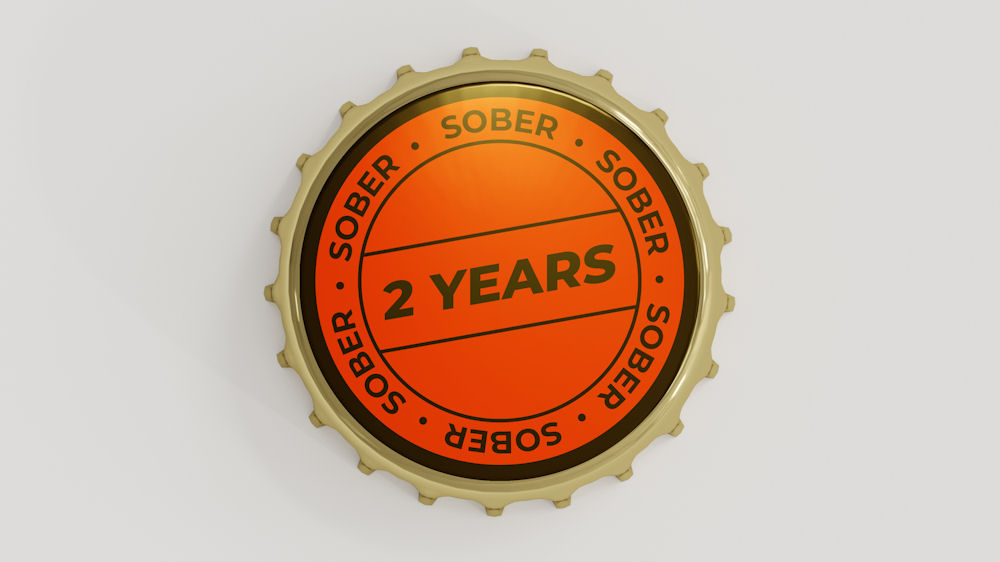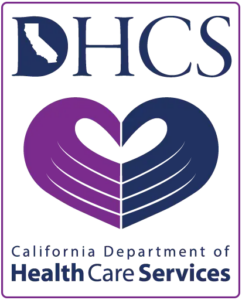Embracing sobriety is one of the most important choices a person can make. It’s a step toward a brighter, healthier life, free from the cycle of addiction. The journey may be tough at first, but there is life beyond addiction, full of possibility, connection, and real happiness.
The benefits of being sober go far beyond quitting a substance. Sobriety offers mental clarity, emotional stability, stronger relationships, and the freedom to live with purpose. It’s not just about stopping—it’s about starting fresh and building a new, better life, one step at a time. Surf City Detox in Huntington Beach, California, can help you or a loved one reap the benefits of being sober, but also recover. For those beginning their journey, a professional detox in Huntington Beach provides the vital first step toward long-term recovery. With the right support system and environment, detox in Huntington Beach can lay the groundwork for lasting change and renewed hope.
What is Sobriety?

According to the fundamental definition found in dictionaries, sobriety denotes a condition in which an individual is not under the influence of any substances. This basic understanding can aid in grasping the concept of sobriety within the framework of the brain disease model of addiction, which posits that prolonged exposure to drugs and alcohol interferes with the normal functioning of essential brain areas.
While sobriety primarily signifies the absence of intoxication, for those in recovery, it encompasses more than merely refraining from alcohol consumption. Each individual may have their interpretation of sobriety; however, for many in recovery, it involves a commitment to active participation in their recovery journey. Engaging in supportive services is crucial, as a lack of involvement can increase the risk of relapse.
What Happens in Your First Year of Sobriety
The first year of sobriety is a challenging but transformative time, often described as a rollercoaster of emotional and physical changes. During this period, the body and brain begin to heal from the effects of drug addiction. Withdrawal symptoms, cravings, and emotional ups and downs are common as individuals learn to live without substances. It can be especially tough when it comes to social situations or dealing with stress without relying on alcohol or substances.
Despite these challenges, this year also brings significant progress. As the body heals, physical health improves—skin clears up, energy increases, and overall wellness gets better. Mentally, clarity returns, with better memory, sharper decision-making, and stronger emotional resilience. New ways of coping with stress begin to develop, helping individuals handle life’s challenges without substances. The first year of sobriety is a crucial time for creating new routines, building a support network, and rediscovering personal strength, all while setting the stage for a substance-free future.
Challenges of Maintaining Long-term Sobriety
Maintaining long-term sobriety is an ongoing process, and the obstacles individuals face can vary greatly. Some of the main challenges include:
This is likely one of the biggest challenges for anyone in recovery. The unpredictability of triggers, whether from people, places, or emotions, can make it tough to stay sober. Having a solid plan and coping strategies for these moments is critical in avoiding relapse.
Social situations, especially early in recovery, can be tricky. The pressure to conform or fear of being left out makes it harder. Isolation from old circles can also feel lonely. Finding supportive friends or a group is essential.
Many in recovery also deal with mental health struggles like anxiety disorders, depression, trauma, or bipolar disorder, and these often go hand in hand with addiction. Dealing with both addiction and mental health challenges can make staying sober more complex. Seeking help for both issues and developing new coping mechanisms is key for long-term sobriety.
Relapse is a common part of the recovery process, and it can be devastating emotionally. However, seeing setbacks as a learning experience rather than a failure is important. The way you respond to a relapse can determine your future success, and it’s about picking yourself up and continuing the journey.
Life doesn’t always go according to plan, and major life changes—like moving, a breakup, or a job change—can throw you off your recovery routine. Staying grounded and sticking to the practices that support your sobriety during tough times can make all the difference.
Understanding the general timeline of sobriety can be a helpful way to track progress and set realistic expectations. Each stage brings different challenges and rewards; along the way, you’ll start to notice the benefits of sobriety. Recognizing where you are on the journey can make all the difference in maintaining motivation and staying focused on your goals.
Benefits of Being Sober
There are countless benefits to living a sober life. While the journey may require hard work, the rewards are worth it. Sobriety isn’t just about quitting substances—it’s about rediscovering yourself and reclaiming your life. Here are some of the most significant benefits:
Sobriety can improve overall health, including stronger immune function, healthier skin, digestion, and sleep quality. Your body starts to heal, and you may notice increased physical stamina and fewer illnesses.
Without substances draining your energy or stealing your time, you’ll have more freedom to pursue hobbies, career goals, passions, and relationships. Life starts to feel more manageable and fulfilling when you’re not constantly recovering from hangovers or withdrawals.
Sobriety brings mental clarity, making it easier to focus, make decisions, and solve problems. Many people find they’re more creative, productive, and emotionally balanced without the fog of addiction.
With time and effort, many people in recovery can rebuild relationships that were damaged by addiction, leading to deeper connections with family, friends, and even themselves. Trust can be rebuilt, and communication often becomes more honest and meaningful.
Sobriety offers the opportunity for self-discovery, healing, and emotional growth. As you work through past traumas and reflect on your life, you gain a stronger sense of identity and purpose.
Living sober often means spending less money on substances and related consequences (like legal issues or medical bills). This allows for better budgeting, saving, and financial planning, leading to greater independence and peace of mind.

How to Celebrate One Year of Sobriety

Celebrating the one-year sober milestone is an incredibly significant achievement. By this point, you have developed a deeper understanding of yourself and your triggers. Life is likely starting to feel more fulfilling and manageable, and you may feel more grounded in your sobriety. At this milestone, many people also reflect on their growth and set new long-term goals for the future.
Consider celebrating in ways that honor your journey:
- Reflect and Express Gratitude: Write down how your life has changed and what you’re thankful for.
- Share Your Story: Attend a support meeting and share your experience, strength, and hope to inspire others.
- Treat Yourself (Soberly): Plan a special meal, buy yourself something meaningful, take a trip, or indulge in a relaxing spa day.
- Spend Time with Supporters: Celebrate with friends, family, or recovery peers who have supported you.
- Recommit to Your Recovery: Use the milestone as an opportunity to set new goals for your continued growth and well-being.
- Do Something You Couldn’t Do Before: Hike a mountain, run a race, finish a creative project – engage in an activity that showcases your renewed health and vitality.
Sobriety vs Recovery: What’s the Difference?
In its most basic definition, sobriety refers to the act of abstaining from alcohol consumption to avoid intoxication. However, without a dedicated approach to recovery, sobriety may only be a fleeting condition. When an individual is in recovery, they not only avoid intoxication but also engage in a structured program designed to support their continued sobriety. This may include attending support group meetings, receiving counseling, or utilizing medications to help prevent relapse.
Research involving participants in a 12-step program has shown that sobriety encompasses more than mere abstinence; it also tackles the psychological and emotional dimensions of maintaining recovery. Being in recovery entails engaging in a relapse prevention strategy, which includes:
- Attending support group meetings
- Practicing self-care
- Establishing healthy boundaries
- Addressing negative thought patterns
- Mending relationships affected by alcohol misuse
Achieving long-term sobriety necessitates a firm commitment to recovery. Our approaches can assist you in transforming sobriety into a lasting state rather than a temporary phase.
Tips On How to Maintain Long-Term Sobriety
Staying sober requires continuous effort, but it is possible with the right tools and mindset. Here are a few tips to help you stay on track:

- Build a support network: Stay close to people who support your sobriety and understand what you’re going through.
- Practice self-care: Take care of your body and mind with exercise, healthy food, rest, and stress-relief activities.
- Avoid triggers: Stay away from situations, places, or people that might tempt you to use again.
- Set goals: Make small and big goals to stay focused and see how far you’ve come.
- Stay connected: Keep attending meetings or therapy to stay accountable and feel supported by others on the same path.
Achieving recovery necessitates the abandonment of substances and the establishment of a new lifestyle where substance abuse is not an option. Without making significant life changes, it can be challenging to commit to sustained sobriety. To facilitate complete recovery, reflect on your motivations for change, such as becoming a better parent, enhancing your marriage, or simply adopting a healthier way of living.
Being attuned to your emotions is crucial for maintaining sobriety. Emotional relapse, which precedes a physical return to substance use, is often the initial step toward relapse. If you find yourself suppressing your feelings and isolating from others, you increase your risk of reverting to substance use.
Rather than suppressing your emotions, it is vital to seek support when necessary and engage in effective self-care. This includes taking time to unwind when you experience feelings of loneliness, anger, or fatigue.
An effective relapse prevention strategy enables you to recognize and manage your triggers. To uphold your commitment to sobriety, it is essential to avoid triggers whenever possible and develop coping mechanisms for when you encounter them. This often involves minimizing stress and steering clear of individuals, locations, and situations linked to your substance use.
If you are struggling to maintain sobriety within your community, you might find it beneficial to enter an inpatient rehabilitation program. These programs require you to reside at a facility, effectively distancing you from the triggers present in your everyday life. Engaging in inpatient rehab can provide you with a foundation of sobriety and equip you with the skills to handle triggers before you return home.
Remember, recovery is a journey, not a race. Be patient with yourself, celebrate your progress, and keep moving forward—one day at a time.
Reap the Benefits of Being Sober With Help From Surf City Detox

If you or someone you love is struggling with addiction, the team at Surf City Detox is here to help. Our comprehensive detox programs and supportive environment can guide you through the early stages of sobriety, allowing you to experience the full benefits of sobriety as you progress on the path to long-term recovery. Don’t wait—contact us today to begin your journey to a sober life.
Dr. Eric Chaghouri is a 2007 graduate from the University of California, Los Angeles, where he earned his B. A. in Biology with Summa Cum Laude honors. While at UCLA, he helped the men’s varsity volleyball team earn a National Championship in 2006. He was named the UCLA Scholar-Athlete of the Year in 2007.
He earned his medical degree from the Keck School of Medicine in 2011. He completed his internship training in 2008 at Cedars-Sinai Medical Center and the remaining three years of residency in general adult psychiatry at the Los Angeles County and University of Southern California Medical Center. He served as the Chief Resident in psychiatric emergency services during his fourth year of residency. He also served as Resident Clinical Instructor and Volunteer Faculty in the Department of Psychiatry at the Keck School of Medicine.
After completing residency, Dr. Chaghouri accepted a fellowship position in forensic psychiatry at the prestigious USC Institute of Psychiatry and Law. His scholarly activities included publishing in Legal Digest and presenting research findings at the Keck School of Medicine annual conference.
Since completing his forensic psychiatry fellowship, he has established a successful and thriving practice in Southern California, focusing on treatment of co-occurring psychiatric and addictive disorders. He has developed a strong clinical team of practitioners who share similar goals and philosophies regarding psychiatric treatment, including providing cutting-edge interventional treatments for psychiatric conditions. He works in an array of capacities with attorneys, courts, and other parties in actual or potential litigation. He also has extensive experience consulting and providing opinions on psychiatric issues for major television networks. Dr. Chaghouri’s interests include addiction medicine, substance use disorders, forensic psychiatry, medical ethics, psychological autopsy, gender wellness, and evidence-based treatment of psychiatric conditions.



